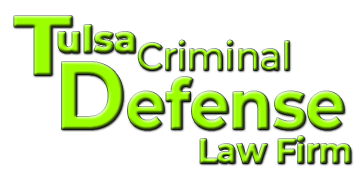Open Communication and Supportive Environment
Facing substance abuse issues is a challenging journey, and it’s understandable that setbacks may occur during the course of your participation in the Drug Court program in Tulsa County. In this article, we will discuss what typically happens if you experience difficulties or relapse while in the program and provide insights into the process.
While struggling or encountering a relapse can be disheartening, it’s important to remember that the Drug Court program aims to provide support and assistance throughout your recovery journey. You will already be familiar with the judge and the court staff, as you have been meeting with them regularly. This established relationship can help create an open and understanding environment when addressing challenges.
Although the drug court and its staff may be committed to your recovery, they are still part of an adversarial criminal justice system. Before you show up in drug court unburdening yourself of guilty knowledge about a weekend binge, you will do best to consult with a Tulsa drug crimes lawyer who is familiar with the court and, preferably, who knows your case. If you don’t have an attorney, you would do better to retain counsel while your case is in the drug court than to risk losing access to the drug court and potentially going to trial in district court on drug charges.
Reporting to the Court
If you stumble or face challenges during your time in the Drug Court program, you will likely be asked to report to the court. This gives you the opportunity to explain the situation to your advocate, attorney, and the judge. It’s crucial to be honest and forthcoming about what happened, as transparency is highly valued in the program.
When facing setbacks or relapses, the court may impose sanctions or consequences as part of your rehabilitation process. Sanctions can range from fines to educational assignments, such as writing an essay reflecting on the incident and its impact on your progress. Additionally, you may be required to participate in additional programs or treatments, such as Sober Living or in-house treatment programs. The severity of the sanctions will depend on the nature and severity of the violation.
Escalating Consequences
If the violations persist or become more severe, the consequences may escalate accordingly. The purpose of increasing the severity of the sanctions is to reinforce the importance of compliance and to encourage progress in your recovery journey. The court’s ultimate goal is to help you overcome the challenges and achieve a successful outcome.
In rare cases where continued non-compliance occurs or significant violations persist, the court may decide to terminate your participation in the Drug Court program. However, before terminating your involvement, you are entitled to a hearing where you can present your case and address any concerns. It is crucial to consult with your attorney during this process to ensure your rights are protected and that you receive proper legal guidance.
Call Now for a Initial Consultation
If you have questions or concerns about the Drug Court program in Tulsa County, it is important to consult with a qualified Tulsa criminal defense attorney who can provide personalized guidance based on your specific situation. At the Tulsa Criminal Defense Law Firm, our team of experienced attorneys is dedicated to supporting individuals facing substance abuse issues and navigating the Drug Court process.
To speak with a Tulsa criminal defense attorney, contact the Tulsa Criminal Defense Law Firm at 918-256-3400. We are here to provide compassionate legal support and help you understand your rights and options. Reach out to schedule a low-cost initial strategy session and let us assist you in your journey towards a positive outcome.



